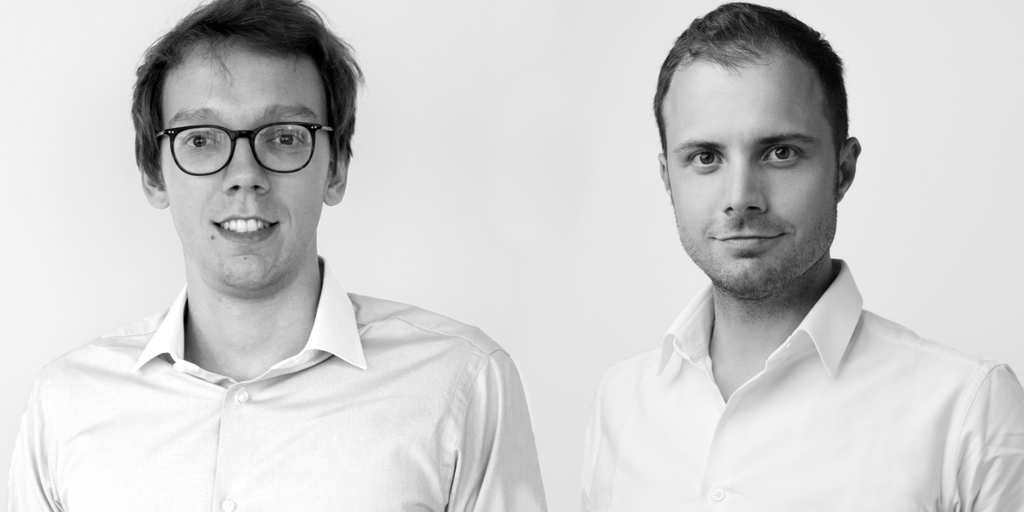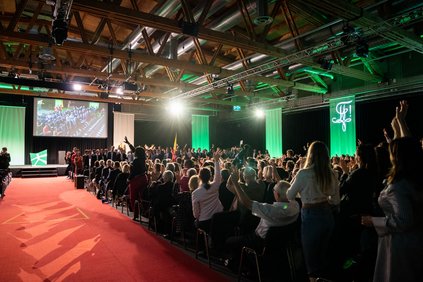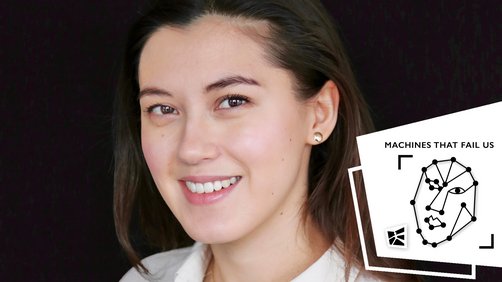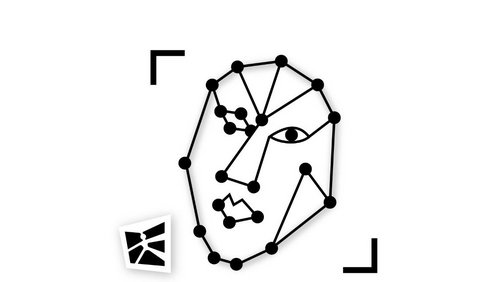Campus - 19.07.2023 - 08:26
HSG Spin-off Decentriq: "We are the Switzerland of data"
The HSG spin-off Decentriq makes it possible for organisations to combine sensitive data in encrypted form, for example in the areas of cybersecurity or health. This opens up new analyses and insights. The Swiss National Bank, Roche and the TX media group, for example, now rely on the Decentriq platform.

"I like to tell potential clients and investors: We are the Switzerland of data. A neutral place where sensitive data can be combined and analysed in encrypted form within a secure framework," said Maximilian Groth, CEO of the HSG spin-off Decentriq. The 37-year-old founded the startup in 2019 with ETH graduate Stefan Deml (in the main picture above left, Groth on the right). Decentriq's data collaboration platform provides so-called "data clean rooms". Here, organisations can upload encrypted data sets, defining exactly how the data should be usable and which analysis results may be shared. During the entire process, the data records remain encrypted and invisible to all other participants, including Decentriq. Consequently, full controls remain with the respective data owner.
"Until now, when organisations wanted to combine data for joint projects, there were problems with data protection compliance, legal hurdles or a lack of mutual trust," explained Groth. Although it was partially possible to combine completely anonymised data, "the informative value of the data is greatly weakened in the process," noted Groth.
The secure use of encrypted data sets makes new data combinations and thus new questions possible. In addition, advances in the field of artificial intelligence (AI) in recent years have made it easier to analyse very large and complex data sets.
Banks exchange information on phishing attacks
The federal government also relies on Decentriq to strengthen cybersecurity. In a project led by the Federal Office for Defence Procurement (Armasuisse), the Swiss National Bank, the Zurich Cantonal Bank and the stock exchange service provider SIX combined highly sensitive data on phishing attacks – i.e. cyber attacks via e-mail – with one another.
This allowed the three financial institutions to identify threats across their respective organisations and compare their defence strategies. "The successful pilot project has shown that the neutral and protected instance of the 'Data Clean Rooms' enables useful insights to be gained into cyber threats without sensitive data having to be shared between organisations," the Confederation wrote on the matter in a media release this spring.
Sharing patient data securely
The Decentriq platform is also used in the healthcare sector, for example by the pharmaceutical company Roche. For the testing of new biomarkers (i.e. measurable parameters that make a statement, for example, about a person's state of health), this is dependent on data from external health care providers such as clinics and hospitals. Until now, Roche has often only been able to evaluate this externally collected data in a very cumbersome way due to data protection. It has had to leave this task to health care providers, who often have too few resources for it. Using a data clean room, Roche can now conduct important research on the basis of this data without the identity of the patients being disclosed.
This May, Decentriq also received Innosuisse funding of CHF 2.2 million. The aim is to develop a platform that will facilitate cooperation between different institutions with sensitive patient data. The background to this are the requirements of the EU, which wants to increasingly include so-called real-world evidence (RWE) in the approval of medicines from 2025. To achieve this, healthcare providers, pharmaceutical companies and researchers must cooperate more closely and analyse sensitive data jointly.
HSG as a reference for investors
Another area of focus for Decentriq is online advertising. "Here, with the abolition of third-party cookies now also announced by Google in the course of 2024, we are facing a major turning point that offers us an opportunity," Groth said.
Third-party cookies are tracking programmes that mark website visitors and store their behaviour. This gives advertisers who use these cookies information about who should be shown which advertisements. "Online advertising today means a large-scale collection of personal data, which is sensitive from a privacy point of view," Groth pointed out. In the future, website operators and advertisers would have to be able to combine their data in order to target advertising in a cookie-free web world. It is precisely for this purpose that Decentriq has developed so-called "Media Clean Rooms". The advertising company Goldbach, for example, which belongs to the Swiss TX media group, relies on them.
Groth studied at the HSG and graduated with a Master's degree in Accounting and Finance. "The basic training for the bachelor's was very broad. So today I have at least a rudimentary knowledge of many different areas of business, which is important for me as a CEO." The HSG is also a good reference for him personally in talks with potential investors, said Groth, who is also the founder of the HSG Alumni Tech Club. The club links up HSG alumni who work in the technology sector.
More articles from the same category
This could also be of interest to you
Discover our special topics















